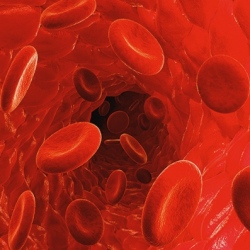
Mayo Clinic researchers have demonstrated the first study in which repeated treatments to remove senescent cells (cells that stop dividing due to age or stress) in mice improve age-related vascular conditions, and may possibly reduce cardiovascular disease and death.
The researchers intermittently gave the mice a cocktail of two senolytic drugs (ones that selectively induce cell death): dasatinib (a cancer drug, trade name Sprycel) and quercetin*. The drugs cleared (killed off) senescent cells in naturally aged and atherosclerotic mice.
The treatment did not reduce the size of plaques in mice with high cholesterol, but did reduce calcification of existing plaques on the interior of vessel walls. The findings appear online (open access) in Aging Cell.
“Our finding that senolytic drugs can reduce cardiovascular calcification is very exciting, since blood vessels with calcified plaques are notoriously difficult to reduce in size, and patients with heart-valve calcification currently do not have any treatment options other than surgery,” says Jordan Miller, Ph.D., Mayo cardiovascular surgery researcher and senior author of the paper.
“While more research is needed, our findings are encouraging that one day removal of senescent cells in humans may be used as a complementary therapy along with traditional management of risk factors to reduce surgery, disability, or death resulting from cardiovascular disease.”
